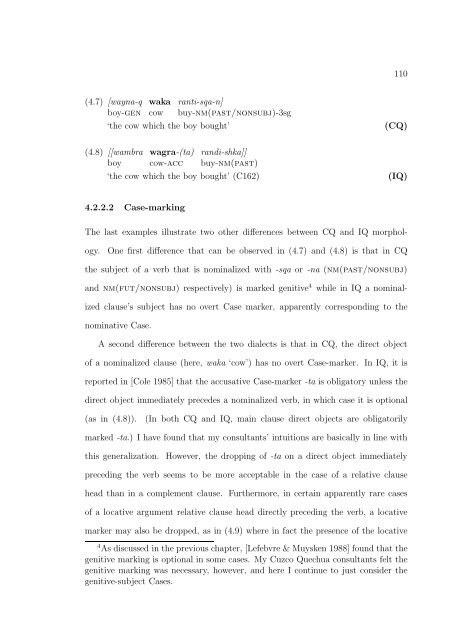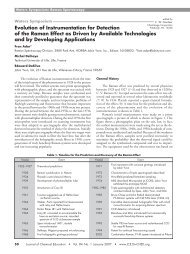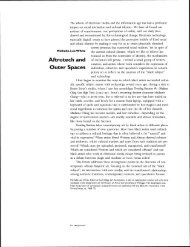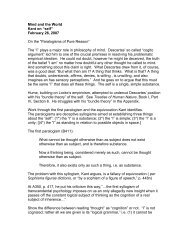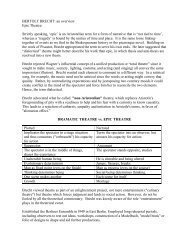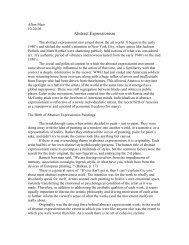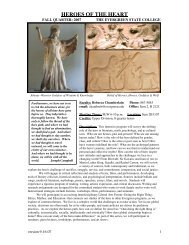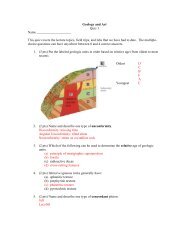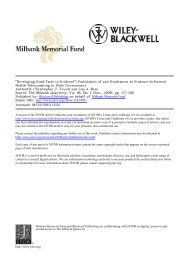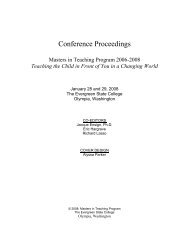the syntax and semantics of relativization and quantification
the syntax and semantics of relativization and quantification
the syntax and semantics of relativization and quantification
You also want an ePaper? Increase the reach of your titles
YUMPU automatically turns print PDFs into web optimized ePapers that Google loves.
110<br />
(4.7) [wayna-q<br />
boy-gen<br />
waka<br />
cow<br />
‘<strong>the</strong> cow which <strong>the</strong> boy bought’<br />
ranti-sqa-n]<br />
buy-nm(past/nonsubj)-3sg<br />
(CQ)<br />
(4.8) [[wambra<br />
boy<br />
wagra-(ta)<br />
cow-acc<br />
r<strong>and</strong>i-shka]]<br />
buy-nm(past)<br />
‘<strong>the</strong> cow which <strong>the</strong> boy bought’ (C162)<br />
(IQ)<br />
4.2.2.2 Case-marking<br />
The last examples illustrate two o<strong>the</strong>r differences between CQ <strong>and</strong> IQ morphology.<br />
One first difference that can be observed in (4.7) <strong>and</strong> (4.8) is that in CQ<br />
<strong>the</strong> subject <strong>of</strong> a verb that is nominalized with -sqa or -na (nm(past/nonsubj)<br />
<strong>and</strong> nm(fut/nonsubj) respectively) is marked genitive 4 while in IQ a nominalized<br />
clause’s subject has no overt Case marker, apparently corresponding to <strong>the</strong><br />
nominative Case.<br />
A second difference between <strong>the</strong> two dialects is that in CQ, <strong>the</strong> direct object<br />
<strong>of</strong> a nominalized clause (here, waka ‘cow’) has no overt Case-marker. In IQ, it is<br />
reported in [Cole 1985] that <strong>the</strong> accusative Case-marker -ta is obligatory unless <strong>the</strong><br />
direct object immediately precedes a nominalized verb, in which case it is optional<br />
(as in (4.8)). (In both CQ <strong>and</strong> IQ, main clause direct objects are obligatorily<br />
marked -ta.) I have found that my consultants’ intuitions are basically in line with<br />
this generalization. However, <strong>the</strong> dropping <strong>of</strong> -ta on a direct object immediately<br />
preceding <strong>the</strong> verb seems to be more acceptable in <strong>the</strong> case <strong>of</strong> a relative clause<br />
head than in a complement clause. Fur<strong>the</strong>rmore, in certain apparently rare cases<br />
<strong>of</strong> a locative argument relative clause head directly preceding <strong>the</strong> verb, a locative<br />
marker may also be dropped, as in (4.9) where in fact <strong>the</strong> presence <strong>of</strong> <strong>the</strong> locative<br />
4 As discussed in <strong>the</strong> previous chapter, [Lefebvre & Muysken 1988] found that <strong>the</strong><br />
genitive marking is optional in some cases. My Cuzco Quechua consultants felt <strong>the</strong><br />
genitive marking was necessary, however, <strong>and</strong> here I continue to just consider <strong>the</strong><br />
genitive-subject Cases.


